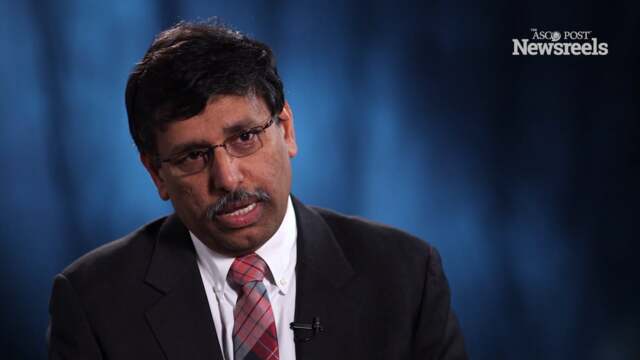James L. Mulshine, MD, on Lung Cancer Screening in the United States: Can It Happen?
2015 IASLC World Conference on Lung Cancer
James L. Mulshine, MD, of Rush University Medical Center, discusses the profound challenges of implementing national CT screening to ensure delivery of high-quality, best-practice early lung cancer detection in the target population of tobacco-exposed individuals (Abstract MS 15.01).
Jennifer King, PhD
Jennifer King, PhD, of the Lung Cancer Alliance, gives her perspective on major themes of this year’s meeting: the stigma of lung cancer, the changing face of who is affected, early detection, and advances in immunotherapy.
James R. Jett, MD
James R. Jett, MD, of National Jewish Health, discusses his study of the early CDT-Lung biomarker. His hypothesis: When used in combination with low-dose CT in screening of a high-risk population, this biomarker would increase the detection of early-stage lung cancer (Abstract MINI 12.11).
Fred R. Hirsch, MD, PhD and Paul A. Bunn, Jr., MD
Fred R. Hirsch, MD, PhD, of the University of Colorado Health Science Center, and Paul A. Bunn, Jr, MD, of the University of Colorado Cancer Center, give their views on the goals and important presentations of the 2015 World Conference on Lung Cancer.
William D. Travis, MD
William D. Travis, MD, of Memorial Sloan Kettering Cancer Center, gives an update on the WHO classification, which is crucial for optimal personalized treatment of lung cancer patients (Abstract PLEN02.01).
Ramaswamy Govindan, MD
Ramaswamy Govindan, MD, of Washington University, summarizes three important papers: ROVA-T in relapsed and refractory small cell lung cancer, genomic characterization of large-cell neuroendocrine tumors, and the ECOG study on bevacizumab following chemotherapy for resected non–small cell lung cancer.





